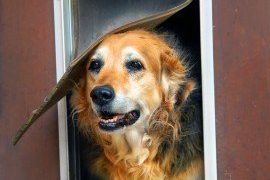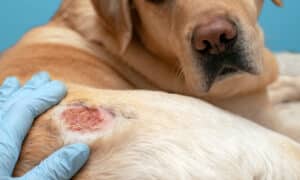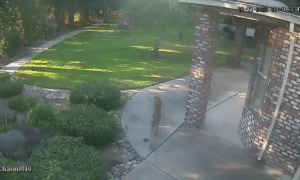“This post contains affiliate links, and I will be compensated if you make a purchase after clicking on my links.”
Tracheobronchitis or Bordetella, more commonly known as kennel cough, is a highly transmissible respiratory ailment in dogs that is known throughout the world to infect a large percentage of pooches at least one time during their life. As its name suggests, the disease is characterized by an inflammation of the dog’s bronchi and trachea. While very young puppies are at risk of the severe health complications of kennel cough due to their immature immune system, senior dogs and even pregnant dogs with weakened immune facilities also tend to suffer from the condition.
Common Causes and Symptoms
Kennel cough can have several triggers. One of the usual culprits is a type of bacterium known as the Bordetella bronchiseptica m. Most pooches that become infected with this microbe are also being afflicted by a virus such as canine distemper virus, canine adenovirus, canine herpes virus, canine reovirus, or parainfluenza virus which makes them more predisposed to catching a Bordetella infection. Other causative factors include cold temperatures, exposure to jam-packed and/or inadequately ventilated environments like in most shelters and kennels, exposure to dust as well as cigarette smoke, and even travel-induced strain.
The most common sign of kennel cough is a strong, unrelenting, dry, hacking cough. Some pooches afflicted by this respiratory disease may demonstrate other symptoms such as sneezing, runny nose, retching, and eye discharge. In most severe cases of this kennel cough, symptoms may progress and even include fever, loss of appetite, lethargy, pneumonia, and worse, death.
Treatment and Prevention
- Kennel cough is generally contagious. If you suspect that your pet might be infected by this condition, you need to contact your vet immediately and keep your sick pet away from other animals.
- Although most kennel cough cases tend to resolve even without treatment, medications can help a lot in speeding up Fido’s recovery or reduce symptoms throughout the course of infection. These often include the use of antibiotics and cough medicines.
- Keeping your pooch in a well-ventilated condition as well as using a harness instead of a dog collar will also help to calm the coughing down.
- Most pets affected by kennel cough can completely recover within just three weeks, though it may take up to about six weeks in senior dogs or those pooches with other medical problems. Since serious and persistent kennel cough infection can result in pneumonia, ensure that you follow up with your vet if Fido doesn’t show any improvement within the projected amount of recuperation time.
- In addition, if your pooch at any point shows sign of not eating, rapid breathing, or listlessness, contact your veterinarian straightway for these could be indicators of more serious health problems.
- There are generally three vaccine forms available for kennel cough: injectable, intranasal, and oral. Although these preparations can help, they unfortunately don’t guarantee protection against kennel cough infections due to the fact that the disease can be set off by countless strains of bacteria and viruses. It’s also important to keep in mind that neither form of these vaccinations will treat any active infection in your dog.


















Robin
says:This is great information for me since I am a volunteer at my Local Humane Society, this is one reason why using hand sanitizer after petting each and every animal will help to prevent the spread of things such as Kennel Cough. Thank You.